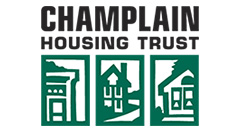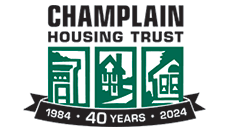The Vermont Housing Improvement Program (VHIP) has relaunched as VHIP 2.0!
VHIP 2.0 provides rental property owners up to $50,000 per unit to cover the costs of bringing rental units up to Vermont Rental Housing Health Code guidelines or to create new units, including Accessory Dwelling Units (ADUs). This program is designed to help increase the supply of affordable, safe rental units in the State and offer avenues for willing participants to support households exiting homelessness.
Applications are now open. Please note that VHIP is a competitive application process and submission of an application is not a guarantee of funding.
Applications can be downloaded by clicking the Applications to download link included below. Completed applications can be emailed to [email protected] or mailed to 88 King Street Burlington, VT 05401.
VHIP 2.0 offers 5-year grants or 10-year forgivable loans for:
- Rehab of existing vacant units
- Rehab of structural elements effecting multiple units, such as the roof of a multi-family property
- Creation of new units within an existing structure
- Creation of an Accessory Dwelling Unit (ADU) on an owner-occupied property
- Creation of a new structure with five or fewer residential units
- Code compliance repairs in occupied units (10-year forgivable loan only)
Rehabilitation projects can include updates to meet housing codes, weatherization, and accessibility improvements, of eligible rental housing units.
Based on the type of project, property owners are eligible to receive up to:
- $30,000 per unit for rehab of 0–2-bedroom units
- $50,000 per unit for rehab of 3+ bedroom units, structural elements impacting multiple units*, new unit creation, or creation of Accessory Dwelling Units (ADUs)
*For structural elements affecting multiple units, applicants can apply for $50,000 per property and must identify one unit in the building that the Rental Covenant will be placed on.
VHIP 2.0 grants and forgivable loan funds are disbursed at four different points during the project:
- 35% when the project starts
- 25% at the halfway point of the project, subject to the property owner returning the fully executed and notarized original Subsidy Covenant to the HOC
- 25% upon satisfactory final inspection of the unit to ensure it complies with the agreed upon scope of work
- 15% once all receipts have been shared with the HOC, all code and occupancy inspections have been completed, and a lease for the apartment has been signed
Program Match: All participants are required to provide a 20% match of the award, the option for an in-kind match for unbilled services or owned materials. For example, a participant who receives an award of $50,000 will be required to provide a $10,000 match.
Fair Market Rent: Participants are also required to sign a rental covenant agreeing to charge at or below HUD Fair Market Rent (FMR) or voucher amount for the length of the agreement (5 or 10 years, learn more about these options here). Participants will be required to submit a yearly recertification form to ensure they are in compliance with the program requirements.
| 2024 HUD Fair Market Rent for Chittenden, Franklin, and Grand Isle Counties* | ||||
| Efficiency | 1-Bedroom | 2-Bedroom | 3-Bedroom | 4-Bedroom |
| $1,341 | $1,441 | $1,887 | $2,390 | $2,513 |
*HUD FMR rates include all utilities. If utilities will not be included please download and use: FMR Calculator
Fair Housing Education: For applications to be accepted VHIP 2.0 participants must watch short interactive videos on Fair Housing and Landlord-Tenant Mediation (click here to take the training).
Tenant Selection: VHIP 2.0 participants have the right to select their tenants. However, the tenants they select must meet the program requirements, based on if they are enrolled in the 5- or 10-year tract. For properties enrolled in this program, the property owner may not require a credit score greater than 500, and participants are limited to charging no more than one month’s rent for a deposit, regardless of whether it is called a security deposit, a damage deposit or a pet deposit, last month’s rent, etc. Additionally, property owners must cover the cost of running background checks on potential tenants. Property owners are also required to accept any housing vouchers that are available to pay all, or a portion of, the tenant’s rent and utilities. Additionally, property owners must accept paper applications for tenants with limited internet access.
Out-of-State Owners: Out-of-State owners are required to identify a property manager located within 50 miles of the units to ensure a local, responsible party can manager the property in the absence of the property owner.
VHIP 2.0 Resource Guide for Property Owners – This in-depth guide walks property owners through every step of the VHIP 2.0 process, from determining if the program is a good fit for your project, how to apply, payment disbursement, maintaining program requirements, to selling a VHIP 2.0 property
- VHIP Project Budget Template
- FAQ: Rehabilitation or Conversion of Unoccupied Units
- FAQ: Accessory Dwelling Units
- FAQ: New Unit Creation (within a new structure)
- FAQ: Rehabilitation of Occupied Units
Homeowners considering adding an ADU please visit the ACCD ADU website and review the How-To Checklist for ADU’s and other resources to familiarize yourself with the process of adding an ADU.
Housing For All a program of Northwest Regional Planning Commission, is offering design and navigation assistance to homeowners in Franklin and Grand Isle counties looking to develop an ADU. Find more information and apply on their website: http://www.nrpcvt.com/housing/.
Contact us:
If you have questions please email VHIP or call (802) 861-7389.


